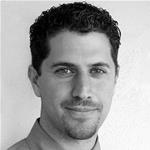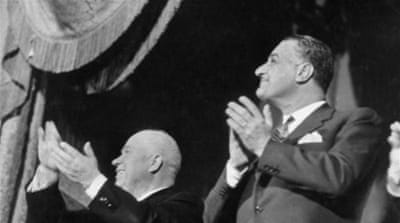Syria's al-Nusra Front has said it will post an interview conducted with its leader Abu Mohammed al-Jolani on the group's ties with al-Qaeda and the Syrian opposition conference that was held in Saudi Arabia.
Social media accounts tied to the group said that the press conference given by Jolani to four Arab journalists would be released at some point on Friday.
Mousa al-Omar, one of the journalists who took part, posted a tweet saying Jolani spoke about "the Riyadh conference, the possibility of al-Nusra ending its association with al-Qaeda, and the sources of their funding".
In a previous interview with Al Jazeera in May, Jolani said al-Nusra refuses any funding from governments, organisations or intelligences services. He argued that "funding that comes from governments does not come without conditions".
"We are funding ourselves from war gains and Syria is rich and bountiful, therefore we don't need anyone to give us charity," he said.
Religious scholar Abu Muhammad al-Maqdisi, whose teachings have inspired al-Qaeda, told Al Jazeera that he did not think al-Nusra would disavow its links with the group.
"If there were a decision on the part of al-Nusra to sever its relations with al-Qaeda, it would have been leaked by now, but nothing has come out to indicate that at this point," Maqdisi said, speaking on the phone from Amman.
He added that if al-Nusra were to renounce its relations with al-Qaeda, it would not absolve them from the "terrorism" label many in the West and the region had given them.
If they do so, Maqdisi said: "It might help them to appear flexible and as people who care about the interests of the Syrian people, whom Nusra has pledged to defend and support against the regime."
Maqdisi also said that the al-Qaeda leader Ayman al-Zawahiri would instruct al-Nusra to end their affiliation with al-Qaeda, if it was in al-Nusra's best interests to do so.
Sources close to al-Nusra told Al Jazeera that Jolani had indicated previously that his group affiliation with al-Qaeda was not something "holy" and that if Muslim scholars deemed it permissible to end this affiliation, he would do just that.
Jolani declared allegiance to Zawahiri in 2013 and went to war with the Islamic State of Iraq and the Levant (ISIL) group after its leader, Abu Bakr al-Baghdadi, attempted to reincorporate al-Nusra into his organisation.
Last November Khaled Khouja, the head of the National Coalition of the Syrian Opposition Groups, called on al-Nusra to end its association with al-Qaeda, stressing that his coalition was committed to a political solution to the Syrian war.
Follow Ali Younes on Twitter: @Ali_reports


![ISIL kills top Iranian commander in Syria Iranian military commander Brigadier General Hossein Hamedani [File: AFP/Getty]](http://www.aljazeera.com/mritems/imagecache/mbdxxlarge/mritems/Images/2015/10/9/a87fdb0470bd429d91dffc95864c1018_18.jpg)
